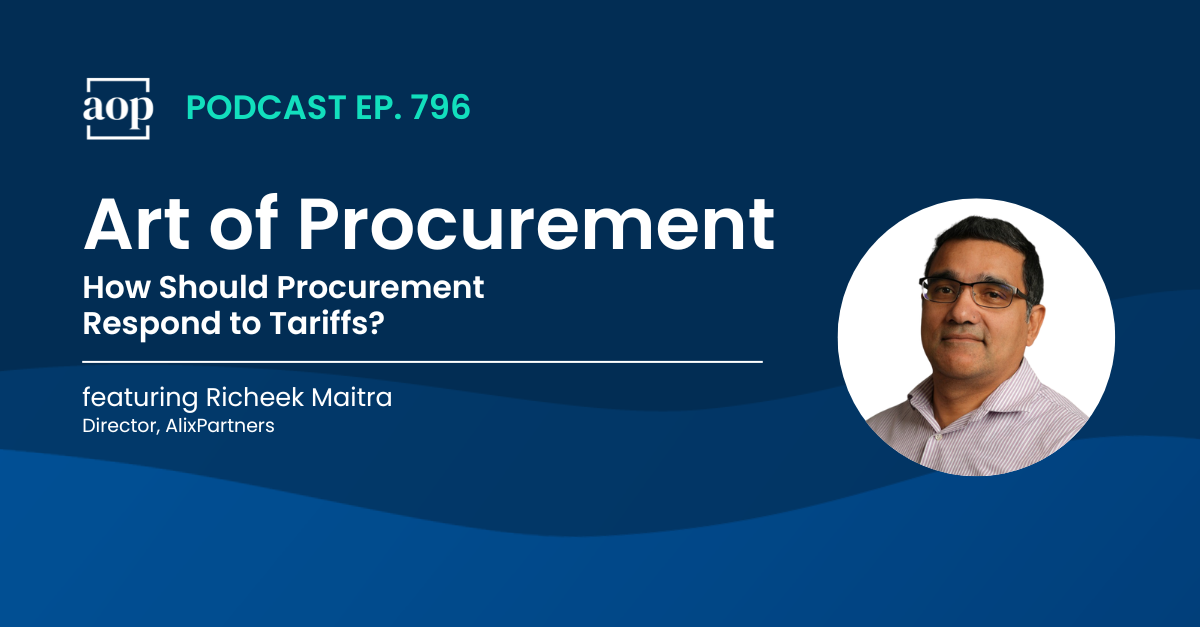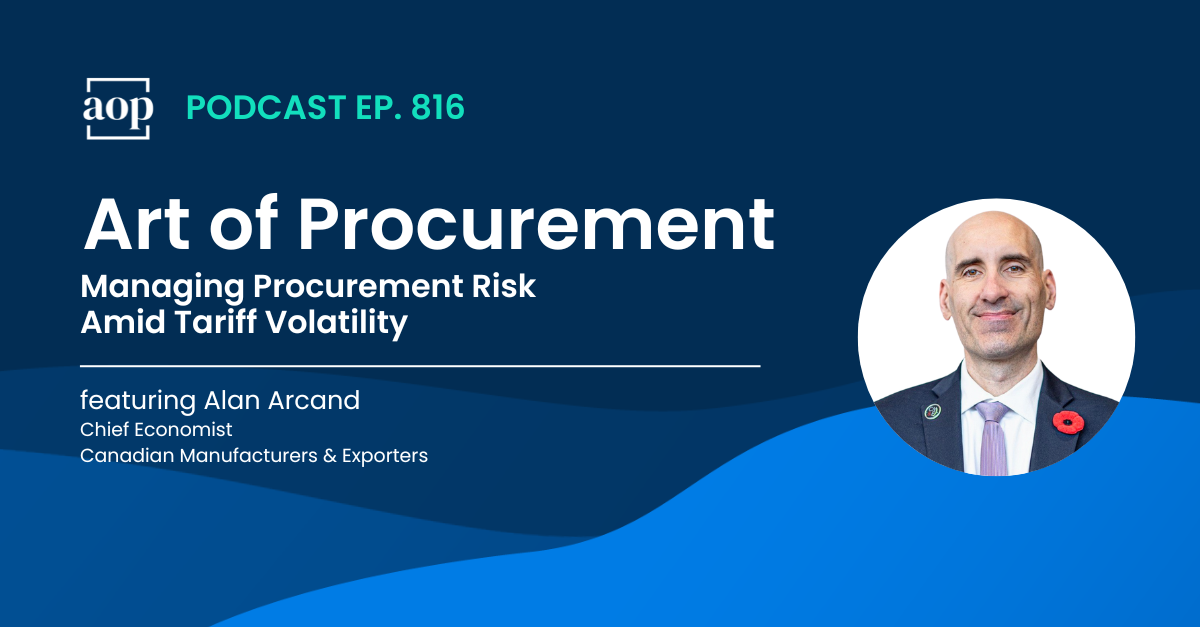
“You’re not going to be able to completely eliminate your tariff exposure. There are three frames under which to think about tariffs: How will you mitigate in the short term? How will you think about it in the medium term from your customer's perspective and pricing? And how will you think about a long-term realignment of supply chains?”
– Richeek Maitra, Director, AlixPartners
As tariff announcements dominate the headlines and send global markets on a wild ride, procurement is working overtime to determine how new policies and retaliatory measures will reshape global supply chains and impact their own organization.
In this timely Art of Procurement episode, I speak with Richeek Maitra, a Director at AlixPartners and an expert on tariffs and their effects on the global supply chain and procurement operations. Richeek is clear in his advice to procurement: don’t panic at every new headline. Instead prepare a strong, thoughtful tariff response strategy that addresses their immediate and long-term impacts.
Here, in Richeek’s own words, are some of the key insights he shared during our conversation about the potential impacts from tariffs that procurement can expect and the levers they have available when forming a measured response:
Don't Chase the News Cycle
"Don't attach yourself to the news cycle because there's a lot of information, news, a lot of changes that are happening to what your fact base is currently. The way to look at it is to understand what tariffs are and what kind of an instrument they are, why governments use them, what are the economic impacts and most importantly, what you can do to mitigate the impact of tariffs on your business."
Cross-Functional Coordination Is Critical
"Work quickly with your supply chain team or whichever team that works on this and build that scenario that would unfold if the new tariffs were to be applied. Procurement would know what they are buying, and work quickly to understand where they are buying it from at the HTS code level and the country level."
Supplier Transparency Is Increasing
"There's much more openness to talk about these things from the supplier side. The opportunity here is to actually work together with suppliers and build trust rather than to still have that lack of trust, which used to be there earlier. That would be more useful than trying to have a more arm's length or transactional relationship."
Framework for Response
"Think about what short-term actions you can take to reduce the duties that you pay. So what we call ‘duty engineering’... can you make some small changes to your supply chain or how you account for things in your supply chain that reduce either the dutiable value or the duty rate that you pay?"
Surprising Optimization Opportunities
"Recoding products being imported to attract a lower rate of duty is surprisingly quite an opportunity. There are very large organizations that have big departments that do this. They work with lawyers and they have brought it to an optimized state. However, many medium to small organizations may not have those resources and may not have done that. Now is the time to look at it."
Leverage Exchange Rates
"Consider the exchange rate between the currency of the trading partner versus the US dollar because typically this kind of tariff regime leads to the strengthening of the dollar. So the supplier is being paid in the local currency, and so there is some leverage in terms of changing the price of the product."
Plan Despite Uncertainty
"Making investment decisions based on uncertainty is not really a good environment to make those kinds of big decisions. So it's important to set goals in terms of how much reshoring you want to do. I would think in the long term, and where you already have plans in place, accelerate them because those are no-regrets moves."
Rational Globalization
"Using the word de-globalization, it's important to understand that in perspective we are not going to completely de-globalize. The economists talk about the laws of comparative advantage that are going to continue to play. So I would say it's a re-jigging of globalization and re-jigging of global trade blocks."




